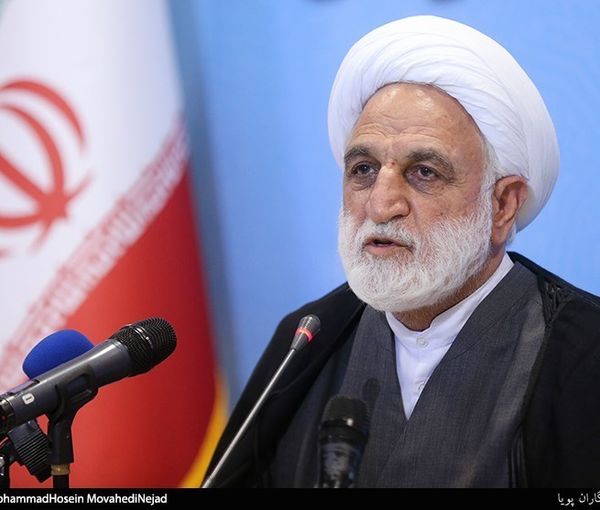
Iran’s judiciary chief Gholamhossein Mohseni Ejei
Iran’s judiciary chief is pushing to override parliamentary approval on the upcoming hijab bill.
Gholamhossein Mohseni Ejei says there is a law to deal with ‘social anomalies and its manifestations’, which means parliament can be circumvented.
Ejei made the remarks on Monday during a meeting with President Ebrahim Raisi who welcomed the suggestion.
Affirming the zeal to override the parliament's authority, Zabihollah Khodaian, head of Iran's General Inspection Organization, also claimed in the meeting, “that the existing law has specified that defying the hijab rule in public and on roads is a crime.” He also called on the judicial officials not to wait for an order in dealing with removal of hijab and "fulfill their duties".
In July 2022, after weeks of harsh measures on the streets, President Ebrahim Raisi ordered all government entities to strictly implement a “chastity and hijab” law approved by the Supreme Cultural Revolution Council under hardliner Mahmoud Ahmadinejad in 2005.
Not long after that, the death of the 22-year-old Mahsa Amini in the custody of hijab enforcers fueled protests that spread throughout the country.
Since March hardliners have tried to put an end to women’s increasing defiance of the compulsory hijab and to reclaim the lost ground but to no avail.
Earlier, Iran's media published the final version of a new hijab bill prepared jointly by the judiciary and the government. However, the draft was strongly criticized by hardliners which saw its punishments for unveiling “too lenient” to be able to stop women from unveiling.
The bill, however, also includes provisions against “anyone” other than authorized entities, who confronts citizens in public and uses violence and threats against unveiled women, after months of incitement by radical clerics calling on all citizens to take the law into their own hands as a moral duty.

 9 months ago
29
9 months ago
29


